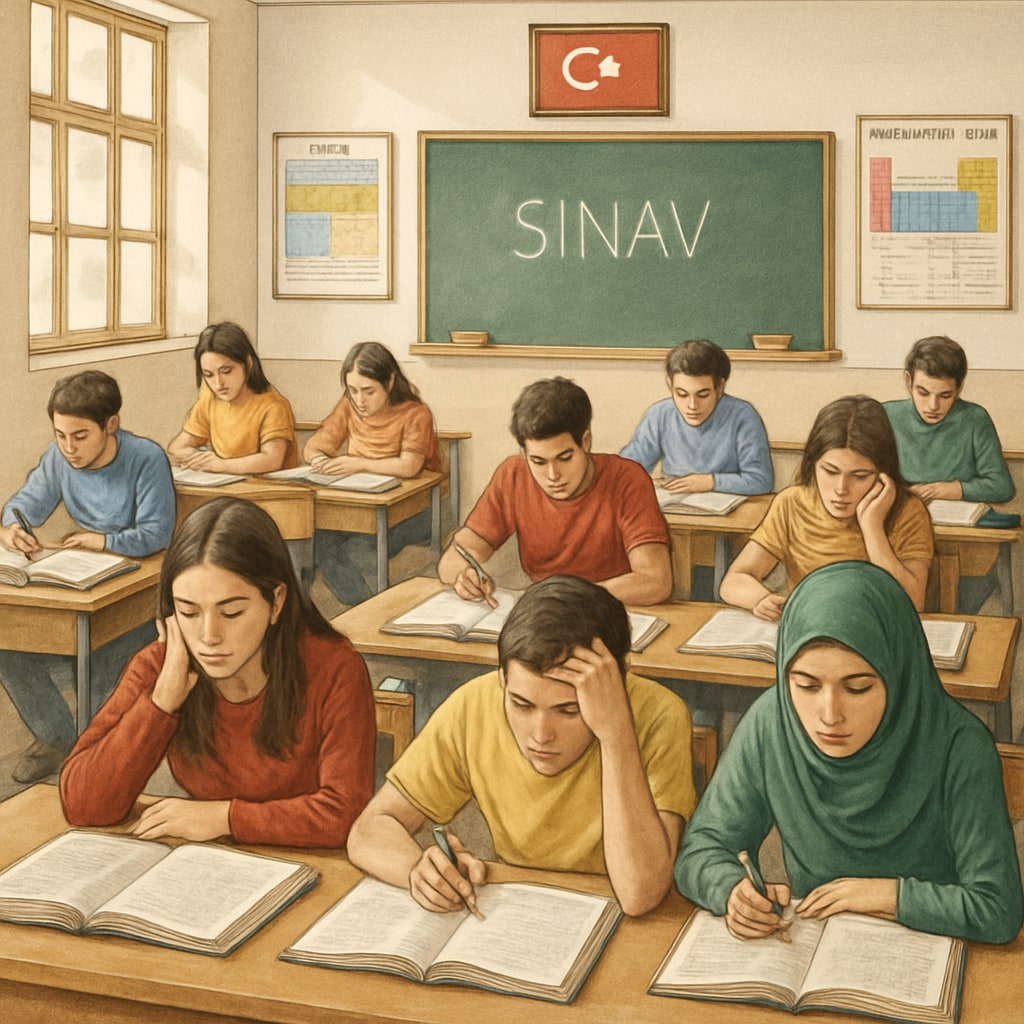Turkey’s education system has long been dominated by a centralized exam-based structure, significantly contributing to the widespread issue of exam pressure among students. While this system aims to create a standardized and equitable framework for academic assessment, it often fails to nurture creativity, critical thinking, and individual growth. By contrasting Turkey’s current model with the UK’s A Level system, this article explores the strategic steps needed to initiate meaningful education reform, paving the way for a more personalized and growth-oriented learning environment.
The Challenges of Turkey’s Centralized Exam System
Turkey’s education system heavily relies on centralized exams, such as the High School Entrance Exam (LGS) and university entrance exams (YKS). These assessments are designed to determine students’ academic futures based solely on their test performance, often at the expense of other vital skills. As a result, students experience intense pressure to excel academically, leading to widespread anxiety and burnout.
The system’s focus on rote memorization and standardized testing leaves little room for the development of soft skills like collaboration, creativity, and problem-solving. Furthermore, teachers are often constrained by rigid curricula, limiting their ability to adapt lessons to students’ unique needs. This one-size-fits-all approach contrasts sharply with more flexible systems, such as the UK’s A Level qualifications.

Lessons from the UK’s A Level System
The UK’s A Level system offers a stark contrast to Turkey’s centralized exams. A Levels allow students to select subjects based on their interests and career aspirations, encouraging specialization and deep learning. This flexibility helps students develop a sense of responsibility and ownership over their education, fostering intrinsic motivation.
Moreover, A Levels emphasize a combination of coursework and examinations, providing a more balanced assessment of students’ abilities. Instead of relying solely on test scores, students are evaluated on their research, analytical, and practical skills. This approach not only reduces exam pressure but also prepares students for real-world challenges.
The UK’s model demonstrates how personalization and flexibility can lead to better educational outcomes. Implementing these principles in Turkey could mitigate the negative effects of its centralized system while encouraging a more holistic approach to learning.

Strategic Steps for Education Reform in Turkey
To address the shortcomings of its exam-based education system, Turkey must undertake a series of strategic reforms. These steps include:
- Curriculum Diversification: Introduce elective subjects that cater to students’ interests and future career goals, similar to the A Level model.
- Assessment Reform: Incorporate diverse evaluation methods, such as coursework, group projects, and practical assessments, to reduce reliance on standardized exams.
- Teacher Training: Provide professional development opportunities for educators, enabling them to deliver personalized and adaptive teaching.
- Student Support Services: Establish counseling and mentorship programs to address exam-related stress and guide students in making informed educational choices.
- Policy Overhaul: Implement policies that prioritize long-term skill development over immediate exam results.
These reforms require collaboration between policymakers, educators, and parents to ensure a smooth transition from the current system to a more inclusive and growth-oriented model. While change may be gradual, the potential benefits—reduced exam pressure, enhanced student engagement, and improved skill development—make it a worthwhile endeavor.
Conclusion: A Path Toward Personalized Learning
Turkey’s education system must evolve to overcome the limitations imposed by its centralized exam-based structure. By drawing inspiration from successful models like the UK’s A Level system, Turkey can create a more personalized and effective learning environment that nurtures students’ individual talents and prepares them for the complexities of modern life.
Education reform is not just about improving test scores; it’s about fostering creativity, resilience, and lifelong learning. By prioritizing these values, Turkey can break free from the exam maze and pave the way for a brighter future for its students.
External Resources:


